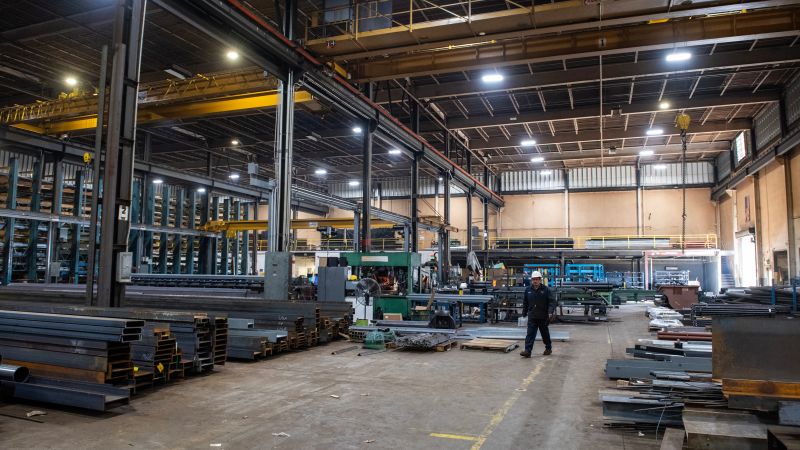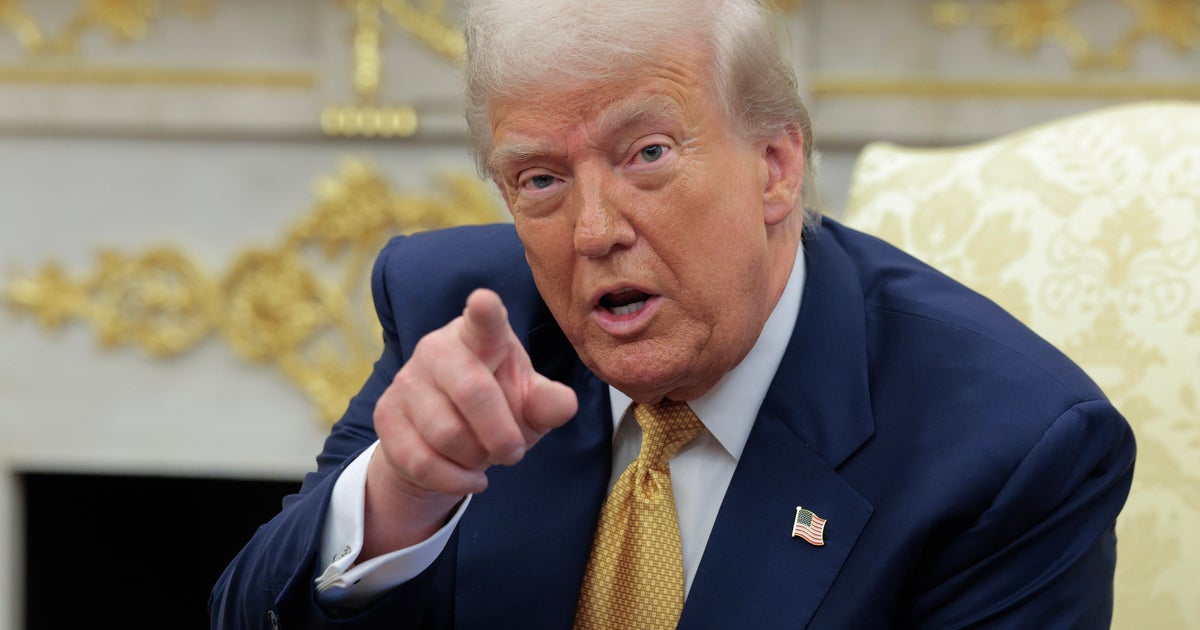T4K3.news
Trump tariffs may increase manufacturing costs significantly
Analysis reveals factory costs could rise by 2% to 4.5% due to impending tariffs.
A new analysis shows President Trump's tariffs may raise factory costs significantly.
Trump tariffs could pressure American manufacturers
A recent analysis highlights the potential financial burden President Donald Trump's proposed tariffs could place on the U.S. manufacturing sector. The analysis indicates factory costs might increase between 2% to 4.5%. Chris Bangert-Drowns, the researcher behind the study, emphasizes that such increases could threaten jobs and wages within an industry that heavily relies on global supply chains. As Trump prepares to implement tariffs on goods from multiple countries, concerns about economic implications grow. While these tariffs are designed to boost American job growth, economists generally remain skeptical, predicting higher consumer prices and slower economic growth. Trump's new tariff framework affects key partnerships with nations such as the European Union and Japan, set to impose taxes ranging from 15% to 50%. While the stock market reacts positively to less severe tariff rates than initially proposed, the long-term effects on manufacturing jobs remain to be seen. Higher prices and the potential for economic stagnation could cause significant backlash against Trump's trade policies.
Key Takeaways
"There's going to be a cash squeeze for a lot of these firms."
Chris Bangert-Drowns highlights concerns about financial pressure on manufacturers.
"We're getting squeezed from all sides."
Justin Johnson discusses the impact of tariffs on his manufacturing business.
"The average household could lose $2,400 due to tariffs."
Ernie Tedeschi underscores the economic burden on everyday Americans.
"I want to buy more equipment and hire more people."
Josh Smith shares his frustrations over tariffs affecting business growth.
The economic consequences of Trump's tariffs could severely impact the manufacturing sector, especially in swing states that cling to these jobs. The analysis suggests that many businesses may struggle to absorb increased expenses, which could lead to layoffs. As manufacturers face tough choices between sustaining operations and maintaining their workforce, the political landscape may shift, revealing the limits of protectionist policies. Trump's emphasis on domestic job creation could fall flat if these tariffs generate an environment where businesses cannot thrive without passing costs onto consumers.
Highlights
- The pressure on wages in manufacturing could be the tipping point.
- Trump's tariffs risk pushing companies into a corner.
- What happens when manufacturers can’t absorb costs?
- The idea of 'Made in USA' could be at risk amidst rising prices.
Tariffs introduce financial risks for manufacturers
Manufacturers face increased costs that may lead to layoffs and slow economic growth. Rising consumer prices raise concerns over public backlash against the administration's trade policies.
How this policy unfolds could reshape U.S. manufacturing for years.
Enjoyed this? Let your friends know!
Related News
Trump's new tariffs will impact US consumers

US-EU trade deal limits tariffs to 15%

US inflation report indicates mixed economic signals

Tariffs likely to affect inflation by fall

Apple to incur $1 billion in tariffs

Trump introduces tariffs impacting 60 nations
Trump's economic indicators show signs of decline
Tariff changes disrupt holiday shopping plans
